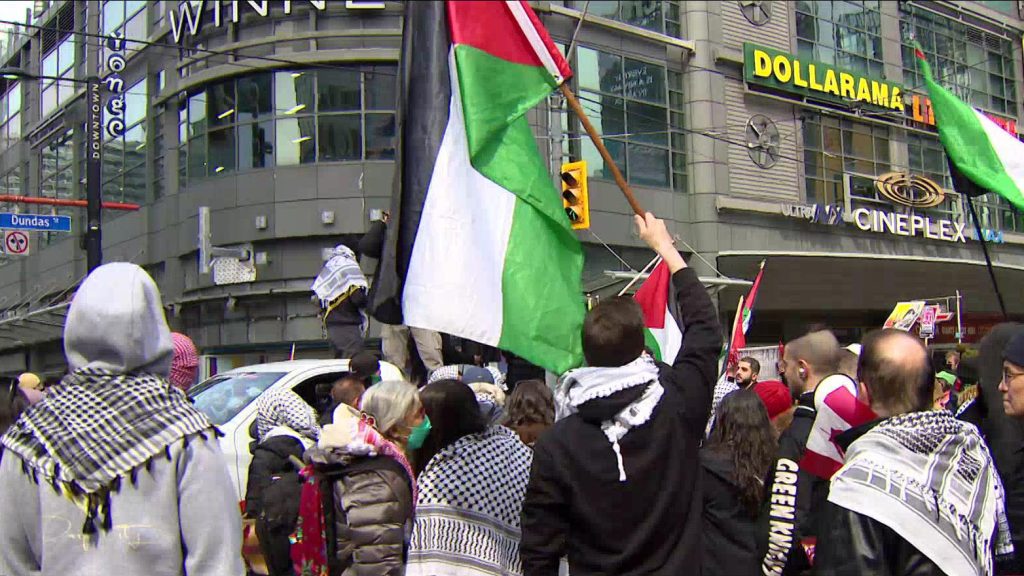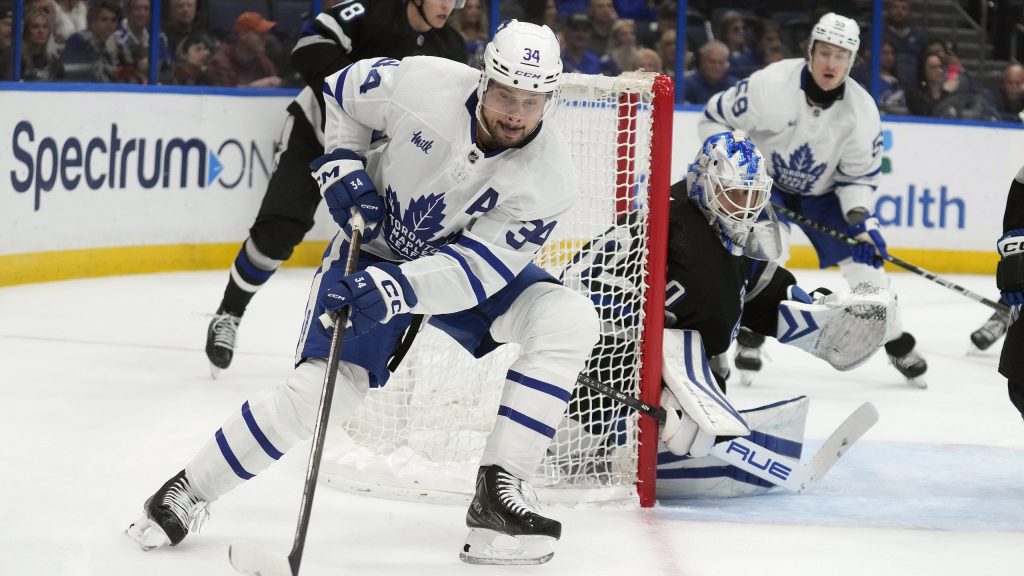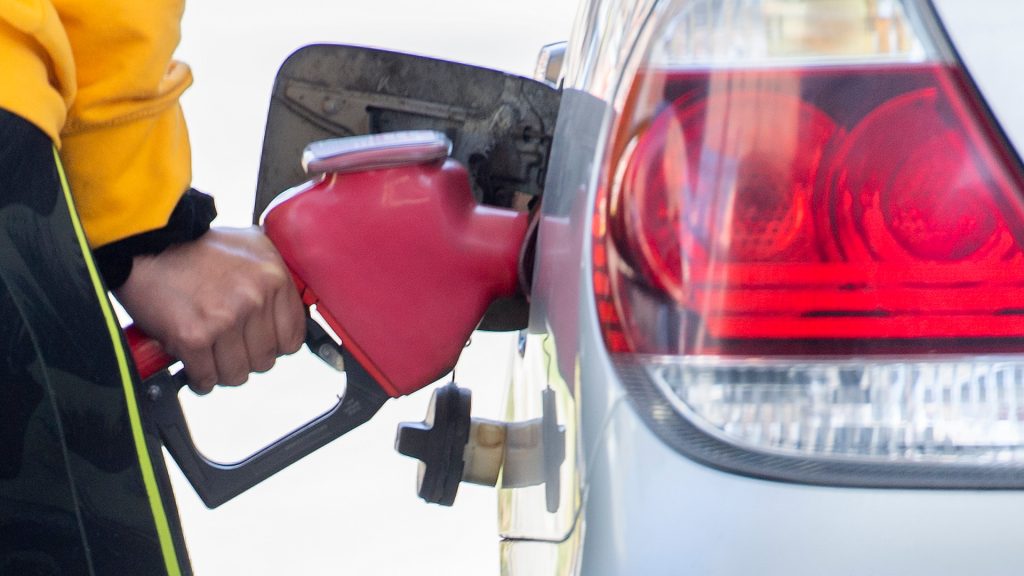Liberals win Quebec election with majority
Posted April 7, 2014 9:07 pm.
This article is more than 5 years old.
The doctor is in.
Philippe Couillard, a former neurosurgeon, led his Liberal troops to a majority win in the Quebec election Monday night, 18 months after the party was turfed out of power under Jean Charest.
The defeat of Parti Quebecois Leader Pauline Marois was stunningly similar to one that brought her to the PQ’s top job after Andre Boisclair suffered the worst electoral thrashing in the party’s history in 2007.
The total of seats won under Marois was hauntingly close to Boisclair’s total of 36 as votes were counted.
The PQ nearly collapsed after the 2007 election and Marois won the leadership by acclamation. The devastating blow to sovereignty in 2014 will likely throw the party into upheaval again as it ponders its next move.
The red Liberal tide flowed early across Quebec’s electoral map, sweeping over the incumbent PQ, which had been battered by questions about its plans for a third sovereignty referendum that most Quebecers flatly said they didn’t want.
The Liberals had more than 40 per cent of the popular vote and won or were leading in about 70 of the province’s 125 ridings.
In terms of popular support, the PQ was just a few percentage points ahead of the Coalition for Quebec’s Future, which still trailed badly in third place in terms of seats.
A dejected Coalition Leader Francois Legault was shown watching as the results came in, one hand gripping the side of a white couch as his wife sympathetically patted his knee.
While no pundit would be foolish enough to declare sovereignty dead, the option has likely been put to sleep for a while. Some observers have suggested it could be years, if not decades, before it is revived.
Couillard, who was a popular health minister under Charest until 2008, stoked the fears of a referendum after star PQ candidate Pierre Karl Peladeau entered the election and declared he wanted to build an independent Quebec.
Marois mused what a sovereign Quebec would be like for days after that, something that allowed her party to be knocked off its message to the point where it never really recovered.
Peladeau, on the other hand, won his Saint-Jerome riding on Monday night.
Monday’s results in Quebec no doubt prompted a sigh of relief in Ottawa as well.
With the PQ out, it means Prime Minister Stephen Harper won’t have to worry about a national unity crisis as he heads toward the 2015 election.
It will also not preoccupy Opposition Leader Tom Mulcair, who draws most of his New Democratic Party caucus from the province, some of whom expressed sovereigntist sympathies at one time or another.
The 33-day campaign had been considered as one of the nastiest in decades.
Voters had complained in the weeks leading up to the vote that bread-and-butter issues had received little attention as politicians fired potshots over the possibility of another sovereignty referendum or challenged each other on ethics.
Marois, whose party formed a minority government in 2012, was hoping to win a majority of the 125 ridings — a scenario that could have eventually led to another referendum.
“It is a beautiful day,” she told reporters after she cast her ballot in the riding of Charlevoix-Cote-de-Beaupre, northeast of Quebec City.
“I am very serene at this moment. I trust Quebecers will choose a good government to lead them and I am confident about tonight.”
Hours later, she would find out that the confidence was misplaced.
Recent opinion polls had indicated the momentum was with Couillard’s Liberals, although analysts were leery about predicting the size of the win given polling blunders in the Alberta and British Columbia provincial elections and in the estimations of Quebec Liberal strength in 2012.
Couillard, who trained as a neurosurgeon, was asked Monday whether it was more stressful performing brain surgery or trying to become Quebec premier.
“They’re pretty different but in some ways they’re quite alike,” he replied after voting in his riding of Roberval, a few hours north of Quebec City.
“We are fortunate to live in a democracy where we vote for our government every four years — or sometimes more often . . . . I’m happy about the campaign we had. I’m confident about the result but it’s now time for citizens to speak. Politicians have spoken enough.”
The PQ had hoped to capitalize on identity politics, as it did in 2012, by making its secular charter the focus of the campaign.
But that plan was derailed when Peladeau pumped his fist and announced just days after Marois called the election he had left the business world for politics so he could build an independent Quebec for his children.
Couillard repeatedly asserted during the campaign that a PQ majority government would mean another referendum, which polls constantly suggest is something a majority of Quebecers do not want.
Marois’s defence was that Quebecers were voting only for a government Monday and not on whether there would be another referendum.
She reiterated throughout the campaign she would hold a plebiscite only when she believes Quebecers are ready for one.
At dissolution, the PQ had 54 seats, while the Liberals had 49. The Coalition had 18, Quebec solidaire two and there were two Independents.
Nineteen per cent of the six million eligible voters cast a ballot in advance polling. As of 5:30 p.m. Monday, the percentage of Quebecers who had voted stood at 52.8 per cent, including the advance polling.
In the 2012 election, 53 per cent of eligible voters had cast a ballot as of 5:30 p.m., including the advance polling.
Turnout at the end of the day was 74.6 per cent.










